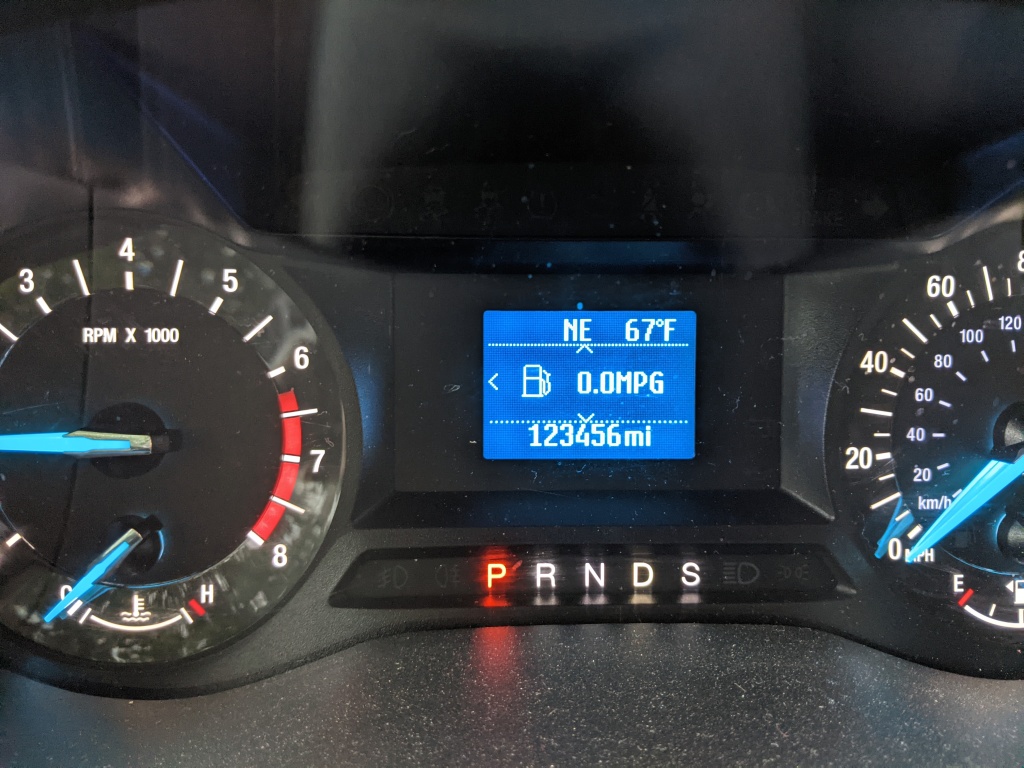Last Saturday I did a quick run to the local convenience store for two ten-pound bags of ice so we could make a freezer of homemade ice cream. After exchanging $10 for the ice, tossing two pennies in a plastic dish, and then folding $2 of change into my wallet, I threw the ice into the van and headed up the hill to our road. As I thumped onto the bridge across Beaver Creek, I glanced down at the odometer and saw 159,999. A few seconds later, I watched it tick over to 160,000. I seldom look at my odometer, so the chance that I would look down at the perfect 30-second window was quite improbable. Several years ago, I was sitting in my driveway preparing to back out and happened to see that my car’s odometer was 123,456. I snapped a picture, sent it to my wife for her amazement, and even showed it to a few folks who seemed mildly interested at such an unlikely happening.
Just the other day my wife mentioned, with a twinkle in her eye, that her 30th birthday was coming up this year. She was wryly hinting that maybe this year she could receive a larger gift than normal. Fortunately for her, I already had something picked out, of which she still is clueless. But why should we celebrate her 30th trip around the sun with a magnificent gift and not her 31st? Why do we imbue round numbers with special significance?
Perhaps it’s simply an artifact of our decimal numbering system. Would switching to a different numbering system change which birthdays and anniversaries we celebrate? The ancient Babylonians had a sexagesimal (base 60) numeral system. Did they have only one round number birthday in a lifetime? How bleak would it be to hit 60, and then you know that the next time your family and friends would join together to celebrate your life would be at your funeral?
With our decimal numbering system, numbers that end in 5 or 0 seem more significant to us. We call a 25th anniversary the silver anniversary and the 50th the gold anniversary, but then we don’t give the 26th or the 51st any special recognition. As a greater number, shouldn’t it receive greater honor? Similarly, 160,000 miles seems more significant than 163,971 miles, but why? Perhaps because a long line of zeros simply seems more improbable than a random assortment of numerals. However, no matter what mileage is showing, when the odometer flips to the next mile, we will never see the previous mileage again. It was here for a moment, for once in the lifetime of the vehicle, and now it is gone.
We often hear that something is a “once-in-a-lifetime experience.” These tend to be uncommon, expensive, or both. After traveling to watch the total solar eclipse this year, people would ask me what it was like. While I struggled to express my thoughts, I would usually tell them that it was an experience they should see at least once in their life. A friend who also saw the eclipse told me that what impressed him about it was its inevitability. It was going to happen, on its own time and at its own pace, and there was nothing we could do to change it. Did April 8, 2024 in the afternoon not work for you? Did a single errant cloud cover the sun during the three or four minutes of totality? Well, too bad, you missed it.
Whether it’s a total solar eclipse, a 30th birthday, or your odometer turning over from 159,999 to 160,000, these are all once-in-a-lifetime experiences. They are here, you experience them, and then they are past. But what about mile 160,001, a 31st birthday, or the family camping trip you went on last summer? They might not seem as significant as something with a round number, but there is nothing about them that makes them inherently less valuable.
What if we would imbue significance to all things that only happen once, even if they don’t occur on a round number or are the result of a celestial alignment? My family will never again be like they are today, just like our vehicle will never again visit 160,252 miles. If I can remember this it helps me see ordinary days as opportunities for significance instead of mundane moments I must endure to get to a time I can celebrate.
I’m not against celebrating milestones—I do plan to purchase a nice gift for my wife’s 30th birthday. But I do want to remember that many of the things we experience every day are legitimately once in a lifetime. Last evening I spent an hour picking black raspberries with my dad and my oldest son, who will never again be six years, four months, and seventeen days old. There was nothing particularly special about the evening, but the memories of fighting cobwebs and briars for a few handfuls of berries will remain long after the scratches and berry stains fade.

Leave a comment